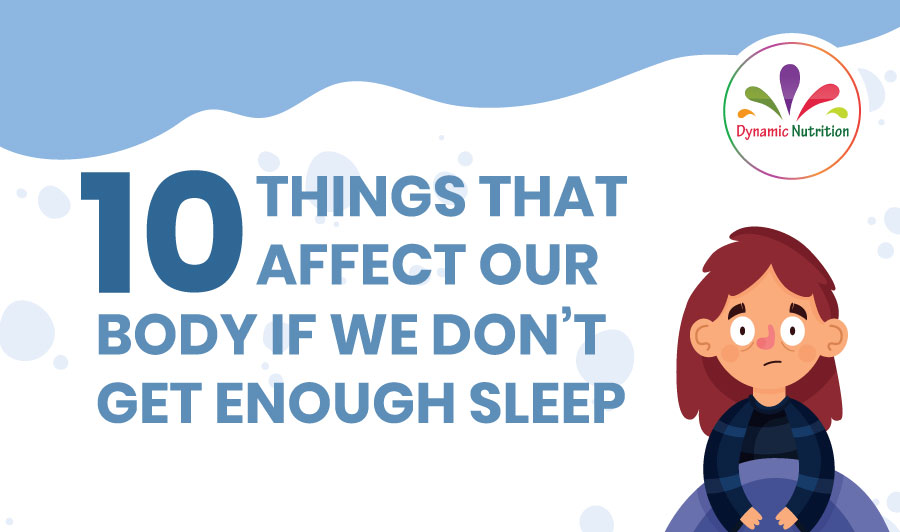 Sleep is magical, and few things are better than a good night’s rest. But what happens when you find yourself not getting enough sleep? Do a few restless nights really matter?
Sleep is magical, and few things are better than a good night’s rest. But what happens when you find yourself not getting enough sleep? Do a few restless nights really matter?
Your body uses sleep wisely, taking that precious time to build up your immune system, process information, and reset before a new day begins. When you don’t get an adequate amount of sleep, all these functions and more are thrown off.
How much sleep do you actually need?
Here a general guideline:
- Older adults, 65+ years: 7 to 8 hours.
- Adults, 26 to 64 years: 7 to 9 hours.
- Young adults, 18 to 25 years: 7 to 9 hours.
- Teenagers, 14 to 17 years: 8 to 10 hours.
- School-age children, 6 to 13 years: 9 to 11 hours.
- Preschool children, 3 to 5 years: 10 to 13 hours.
- Toddlers, 1 to 2 years: 11 to 14 hours.
- Infants, 4 to 11 months: 12 to 15 hours.
- Newborns, 0 to 3 months: 14 to 17 hours.
1. You Forget Stuffs
Not only can missed sleep make you more forgetful, there’s also a growing body of research indicating that sleep has an impact on learning and memory. Researchers suggest that sleep is critical to the process of consolidating the things we learn in the brain. In other words, we need proper rest to lock in new information and commit it to memory.
2. You Can’t Think
Even missing one night of sleep can lead to some major cognition (thinking) issues. In a study published by Experimental Brain Research, a group of 18 men were given a task to complete. The first task was completed following a full night’s sleep. The next task was completed after skipping a night of sleep.
Brain functions including memory, decision-making, reasoning, and problem-solving worsened, along with reaction time and alertness.
3. Your Have Little To No Sex Drive
Not getting enough sleep could reduce your sex drive. In one study, young men who lost sleep over a one-week period showed a decrease in testosterone levels. Sleeping 5 or fewer hours reduced sex hormone levels by as much as 10 to 15 percent. The men also reported that their overall mood and vigor declined with each consecutive night of interrupted rest.
4. You Get Sick
Think of your immune system as an army, always at the ready to protect you against the evil forces of infection and disease. Just like an army, your immune system needs time to build its defenses. When you’re sleeping, your immune system kicks into gear and prepares itself by building up substances (like antibodies and cytokines) that help fight infection.
Not getting enough sleep weakens your immune system by not allowing it to create sufficient protection. And when your immune system’s defenses are down, your chances of getting sick go up. Lack of sleep also makes recovery longer when you do get sick.
5. You Heart Suffers
Both short sleep durations (less than 5 hours per night) and long sleep durations (9 or more hours per night) have been shown to have a negative impact on heart health, according to an analysis published in the European Heart Journal. In particular, your chances of developing coronary heart disease or having a stroke are greatly increased with less sleep.
6. Your Weight May Increase
Lack of sleep can cause you to gain weight. A study examined the relationship between sleep and weight in 21,469 adults over the age of 20. The people who slept less than 5 hours each night over the course of the three-year study were more likely to gain weight and eventually become obese. Those who slept between 7 and 8 hours fared better on the scale.
7. Your Risk Of Diabetes Increases
Along with a bigger waistline, people who don’t get enough sleep (or who get too much) increase their risk of developing adult-onset diabetes.
Researchers examined 10 separate studies focused on sleep and diabetes. Their findings uncovered that 7 to 8 hours of rest is the optimal range to avoid insulin issues that could lead to diabetes.
8. Your Cancer Risks Increases
A 2015 study found that lack of sleep is linked to increased risk of some cancers, including prostate cancer, breast cancer, and oral cancer. Falling asleep and staying asleep can be difficult for people who are undergoing cancer treatment and can be a lasting challenge long after remission.
There’s also a risk for those who work overnight shifts. Several years of overnight light exposure may reduce your body’s levels of melatonin, a hormone that helps you sleep. This can encourage cancer growth. Getting at least 7 hours of sleep each night can help you stay healthy.
9. You Get Mood Swings
You know that cranky feeling after a restless night? That’s thanks to not getting enough sleep! Too little sleep can take a toll on your mental and emotional state, making you more susceptible to mood swings and paranoia. When left untreated, sleep deprivation can even cause you to see or hear things that aren’t actually there (aka hallucinations).
In people with certain mental health conditions, not getting enough sleep may lead to an increase in certain symptoms or behaviors.
10. Your Skins Suffers
They don’t call it “beauty sleep” for nothing. Not getting enough sleep will wreak havoc on your skin. A small 2015 study funded by the Estee Lauder Companies found that women who didn’t get enough good-quality sleep had more significant signs of skin aging and decreased skin barrier function. More research is still needed to fully understand how sleep affects the skin.










Facebook Comments